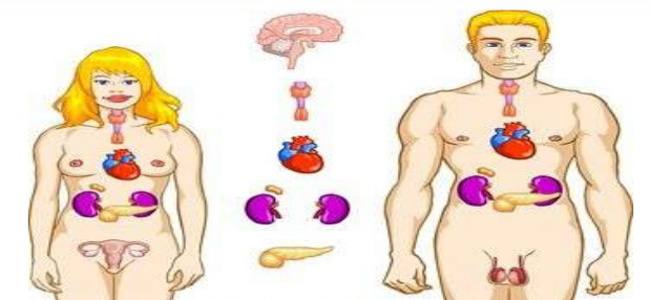
Endocrine and Metabolic Emergencies in Emergency Medicine
By Dr. Amal Mattu, MD @ Maryland University on PUBMED
A junior member of our faculty once approached me for some career advice, inquiring as to what clinical area of emergency medicine in which he should develop an academic niche. I advised him to focus on endocrine and metabolic emergencies. He immediately grimaced as if he had just bitten into a lemon. My reasons for the recommendation were simple: the endocrine system has a direct influence on every other organ system in the body; dysfunction of most organ systems produces metabolic derangements that can be life-threatening; endocrine and metabolic emergencies are very common in clinical practice and a not insignificant portion of the emergency medicine core curriculum; and finally, people don’t understand these emergencies well.
Unfortunately, his visceral reaction was a typical one among emergency physicians when the topic of endocrinology or metabolism arises. These topics are typically taught with poor clinical relevance to emergency medicine, and as a result, they are not enjoyed by most emergency physicians. I explained to this faculty member that, if he could become an expert in these topics and teach them in an interesting and relevant manner, he would find success and opportunities abounding in academic emergency medicine. That junior faculty member was Dr George Willis, one of our guest editors for this issue of Emergency Medicine Clinics of North America, who has rapidly become a national expert in endocrine and metabolic emergencies.
Next to enter the scene was Dr Tyson Pillow, another rising academic superstar in emergency medicine with a strong interest in endocrine and metabolic emergencies. Drs Willis and Pillow have combined their talents and similar interests to produce a fantastic issue of Emergency Medicine Clinics of North America. In reading through this issue, you will quickly appreciate the tremendous importance of endocrine and metabolic issues in the clinical practice of emergency medicine, and you will also appreciate the clinical relevance that they and their authors have brought to topics that are traditionally steeped in basic science minutia.
Articles in this issue discuss core topics such as diabetic, thyroid, and adrenal disorders, sodium and fluid balance, and critical electrolyte emergencies. A separate article is dedicated to simplifying the dizzying array of neonatal endocrine disorders; and a full article is devoted to the influence of the endocrine system on mental status. Finally, a full article is devoted to the all-too-common alcoholic patient in the emergency department, an article that reminds us that these patients are prone to deadly metabolic abnormalities that are easily missed.
For anyone that has ever grimaced at the thought of hearing about or reading about endocrine and metabolic emergencies, I would strongly advise you to take a peek at the articles contained within this issue of Emergency Medicine Clinics of North America. You just might be very surprised to discover the clinical relevance of these topics to daily emergency medicine practice, and you’ll be pleasantly surprised to see how enjoyable it can be to learn more about these topics from some practical and down-to-earth, stellar clinicians. And for those of you that are starting your careers in academic emergency medicine and are searching for a niche, this issue of Emergency Medicine Clinics of North America just might inspire you to choose endocrine and metabolic emergencies as your area of hopeful expertise. Kudos to the authors and guest editors for their contribution to our learning and for their outstanding work!



